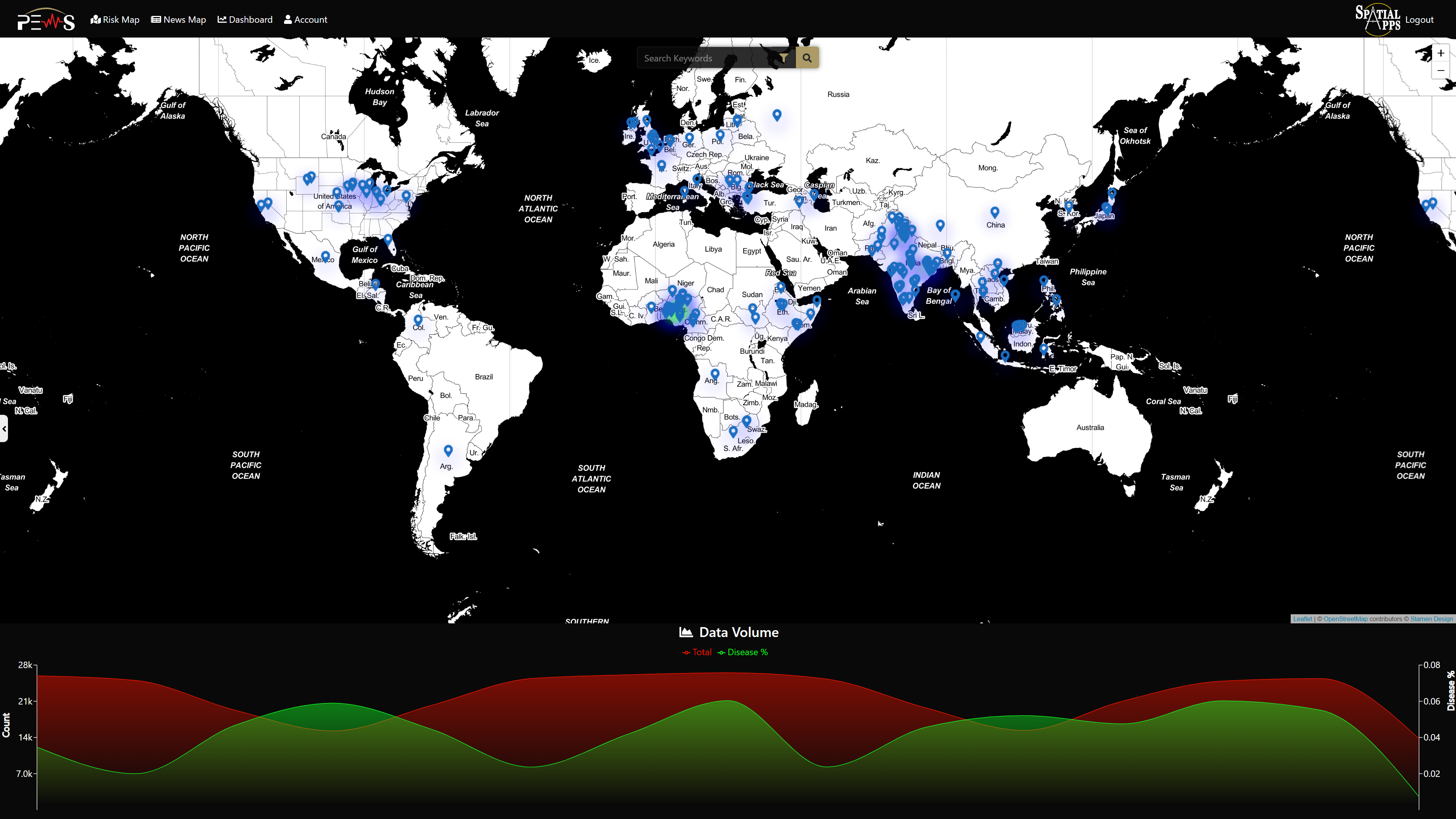Originally published 23 February 2022
This article was updated to reflect changes in relation to the Australia-UK Free Trade Agreement (A-UK FTA). Geospatial Intelligence is now Geospatial Intelligence Ltd. Its product is now called 'Mercury-Health'.
UK space bridge boosts Australian space science
February 2022 marks the one-year anniversary of the Australia-UK Space Bridge.
One beneficiary is Canberra-based imagery and analytics specialist, Geospatial Intelligence Ltd. It is helping the UK’s Department for International Trade (DIT) and Satellite Applications Catapult deliver a pandemic early-warning system.
Australia innovates in geospatial tech
Rob Coorey co-founded Geospatial Intelligence with his wife Judy in 2002.
‘Geospatial Intelligence is about focusing on what’s happening, where it is happening and why it is happening,’ he says. ‘We use space as an enabler to track and analyse multiple variables. The resulting data helps us devise new solutions to real world problems.’
The company has delivered satellite imagery to public and private sector clients. This included environmental imagery before and after the 2019 New South Wales bushfires. Today, it helps organisations track illegal fishing, lost cargo and oil spills. Its technologies can also be used to help monitor biosecurity hazards and agriculture.
Australia space tech tackles global challenges
Geospatial Intelligence now has a global profile – thanks in part to Anglo-Australian collaboration. In 2020, the company entered the Deloitte-sponsored Gravity Challenge.
The Gravity Challenge is an initiative supported by the UK-Australia Space Bridge and Austrade. Corporate businesses, entrepreneurs and universities are invited to design and build solutions to social and environmental problems using space data and space-related capabilities.
The challenge matched the company’s aspirations.
‘As spatial data scientists, we convert data into valuable information that can assist decision makers in their endeavours to protect our planet and humanity,’ says Coorey.
Space Bridge aids battle against epidemics
Austrade’s space-industry experts have advised Geospatial Intelligence on various aspects of UK industry collaboration. This included encouraging the company to enter the health-related category of Gravity Challenge 02: ‘The Next Pandemic: Failure is not an option.’
This called for submissions that ‘use geospatial data to identify the outbreak of diseases as soon as they occur [and] prepare an appropriate response’.
The objective was timely. Coorey thought that geospatial data could be combined with other data – including from social media – to warn of an epidemic outbreak.
And it proved successful. In November 2020, Geospatial Intelligence won this category of the Gravity Challenge.
Space science meets social media
The first step was to use social media and news monitoring systems and process more than a million articles per hour. To do this, Coorey’s team used Artificial Intelligence and Machine Learning tools. This determined the locations where people were discussing symptoms and diseases, and informed the search for correlations.
‘Lo and behold, the data showed certain patterns,’ says Coorey. ‘The feeds brought up symptom “hotspots”.
Company analysts matched the hotspots with scores of environmental factors. These included climate, vegetation and weather patterns, plus multiple human factors.
The end result was approximately 30 layers of data. Geospatial Intelligence calls it an ‘EcoStack’. It helped the company develop a decision-support tool that can help health organisations assess the geographical spread of diseases.
 Mercury-Health Pandemic Early Warning System (PEWS) Risk Map screenshot, Spatial Apps Pty Ltd
Mercury-Health Pandemic Early Warning System (PEWS) Risk Map screenshot, Spatial Apps Pty Ltd
Australian space aids public health
The winning technology should help public health bodies to identify the outbreak of diseases sooner and to respond more quickly.
‘Lives will most certainly be saved by the solutions being developed by Geospatial Intelligence,’ says challenge judge, Robert Kluttz. Robert Klutz was Executive Director for the Commission on Excellence & Innovation in Health, Gravity Challenge 02.
Early signs are positive. The company tested its approach on the Omicron variant of COVID-19. Its technology identified where disease symptoms were “hot-spotting”, including any relationships with environmental factors.
Space Bridge extends international reach
The UK’s Department for International Trade (DIT) is taking a keen interest in the company’s technology. So is a UK-based space tech-commercialisation company called the Satellite Applications Catapult. This has encouraged Geospatial Intelligence to set up a related company in the UK called Spatial Apps (UK). The UK company is now trialling a pandemic early warning system.
The initiative has led to a contract in India. It has also triggered interest from a number of government agencies.
The company receives regular advice about UK market opportunities from Austrade and the UK’s DIT, via the Space Bridge initiative.
‘This is a great example of Australian technology working with the UK and on international projects,’ said Coorey. ‘It’s really exciting stuff.’
Trade deal underpins future success
Analysts expect further hook-ups. The Australia-UK Free Trade Agreement, signed in December 2021, will make it easier for Australian and UK professionals to work in both countries, including in the space industry. This will benefit service suppliers and investors, as well entrepreneurs and innovators.
Go further, faster with Austrade
Austrade’s Go Global Toolkit helps you learn the export basics, find the right markets and understand market requirements.